“The scanner just lit up like a Christmas tree. We’ve got a swarm incoming!”
Most people would run when they hear a warning like that. By the time the horde of insectoid aliens rounds the corner, pincers clawing out in your direction, your only options are to flee or fight back. But if you want to climb the ranks of the dwarven mining company in Deep Rock Galactic: Survivor, you best be ready to return fire when the bugs arrive.
Survivor, Funday Games’ take on Vampire Survivors in the Deep Rock Galactic setting, is a single-player roguelike auto-shooter that tasks players with completing a series of objectives—mining ore, collecting items, surviving hordes of bugs, and shooting down giant behemoths—all while offering different playable dwarves, weapons, and perks to customize each run.
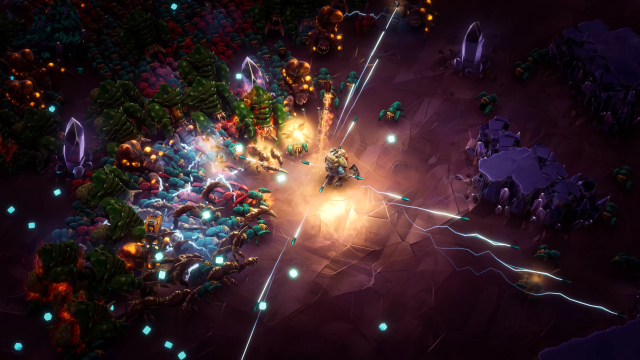
In a world filled to the brim with roguelikes, fans of the genre may be wondering if there’s enough space for Survivor and all of its pesky insects to wiggle their way into the pack. But with Survivor’s addictive gameplay loop, unique classes and weapons, and the same cheeky charm fans loved from Deep Rock Galactic, the answer is a resounding yes.
The dwarves are off to a rock-solid start
Survivor hit digital shelves on Valentine’s Day, and it has already carved a path to many roguelike fans’ hearts. Since its release, I’ve sunk nearly 10 hours into the auto-shooter across both PC and Steam Deck, both of which ran phenomenally. Despite being in early access, Survivor is incredibly well polished with virtually no glitches, stutters, or frame drops. I’d be remiss not to point out just how rare that can be in the modern era of gaming.
Although the early-access period has been relatively bug free (ironic, considering the game is filled with insectoid aliens), Survivor doesn’t entirely escape the woes of its testing phase. Its gameplay loop revolves around unlocking different weapons and leveling them up to increase your survivability, but this weapon scaling can sometimes feel underwhelming. The longer you stick around in a cave, the more the horde’s strength grows, and it often feels like a leap too great for your weapon scaling to combat. Other weapons feel weaker from the jump, disincentivizing you from picking them entirely.
Despite some of the weapons falling flat, unlocking them remains an incredibly fun endeavor. Each gun introduces a new way to play the four different classes, giving your playthroughs a distinctive feel while you’re still in the early hours of the game. My favorite class was the Engineer with his turrets and drones, but the other three dwarves boast their own unique playstyles and weapon pools, and you really can’t go wrong with whichever one you pick.
Unlocking new characters or biomes feels relatively balanced; it doesn’t take too long, nor does it ever feel overwhelmingly difficult. It did take me a few hours to get past the first map and unlock all four playable characters, but it wasn’t so challenging that I became frustrated with the progression system.
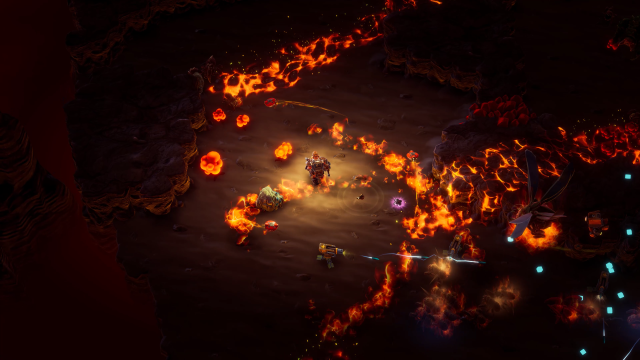
The different biomes, or maps, offer slightly new experiences with unique plants and hazards, but the core gameplay loop remains the same: You drop into the map, clear a landing zone, complete an optional challenge, and defeat an elite enemy before progressing to the next stage. Each map has five levels, with a massive Dreadnought boss at the end of the final level. Different maps introduce only a few new elements to the gameplay. For example, the second level, Magma Core, features areas of the map covered in lava that, if stepped in, damages your character. It doesn’t alter the gameplay too significantly, but it makes you consider your pathing more carefully than the first map, Crystalline Caverns.
Roguelike fans will unearth a new gameplay mechanic in Survivor
Like other roguelikes, Survivor offers ways to customize the difficulty of your runs by mining different types of ore. Gold and Nitra can be used to upgrade your weapons during a playthrough, while others, like Magnite, can be spent from the main menu before a run as a way to permanently increase your character’s stats—including mining and movement speed, weapon damage, and max health. During a playthrough, you may prioritize hunting for certain ore over fighting the horde and gathering experience points, which influences the trajectory of your current and future runs.
Where Survivor separates itself from others in its genre, though, is its environmental design. Each level throws you into a cave with destroyable sections of rock you can either run around or cut your way through. If you have a swarm at your back and need a quick escape, you can carve a path from the stone instead of running through enemies. But you can also get strategic with it; cut just a narrow passage through the rock and force the horde of bugs through it, and suddenly you have a way to control the flow of alien insects headed in your direction. This control over the environmental design not only plays into the theme of Deep Rock Galactic but also adds a layer to the gameplay loop that simply isn’t there in other auto-shooters like Vampire Survivors.
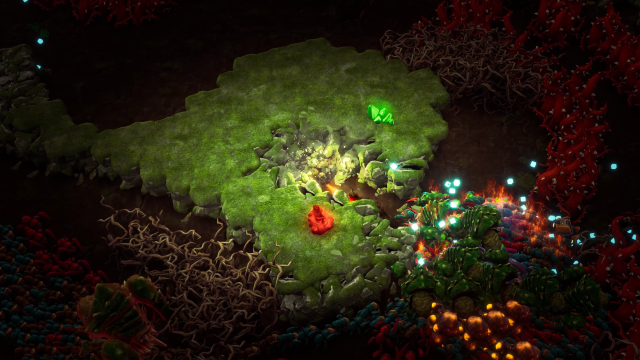
Survivor‘s tiniest of details make for an explosively fun time
Survivor boasts an incredible feedback system and attention to detail that tops this incredibly fun gameplay loop like icing on a cake. Even the game’s tiniest details—everything from the bubble-popping sound when you collect experience points to the dwarves’ on-the-warty-nose voice lines—make it clear this project was a labor of love for the developer. There’s nothing more satisfying than destroying an explosive bug, sitting back, and watching a chain reaction as the horde erupts into a screen full of brightly glowing experience points.
Even if you’ve never given roguelikes a go and prefer the FPS setting of Deep Rock Galactic, I highly recommend adding this game to your collection. At just $10, it’s an absolute steal and will offer you plenty of hours of captivating gameplay.
Just don’t spend too many hours in the depths of Hoxxes, miner. The drop pod won’t stick around forever.
- Well-polished gameplay and high performance
- Diverse classes that offer a variety of unique weapons
- Humorous and charming voice lines
- Lack of diversity in gameplay objectives between biomes
- Weapon progression/scaling can feel underwhelming at times


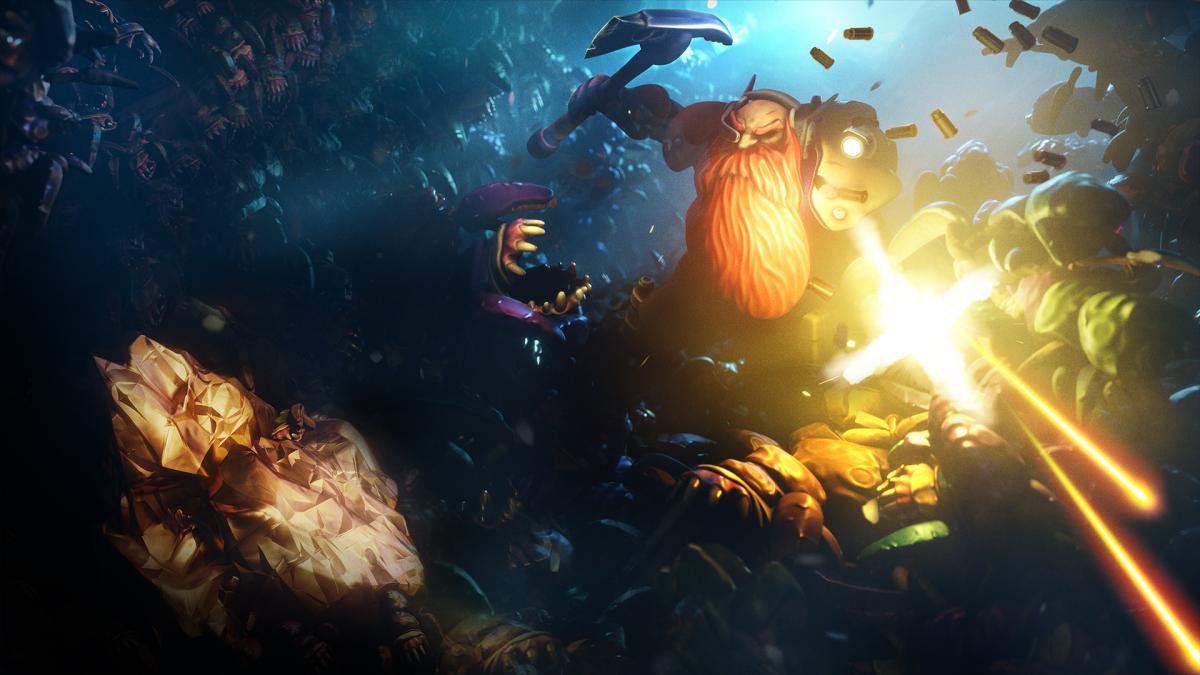
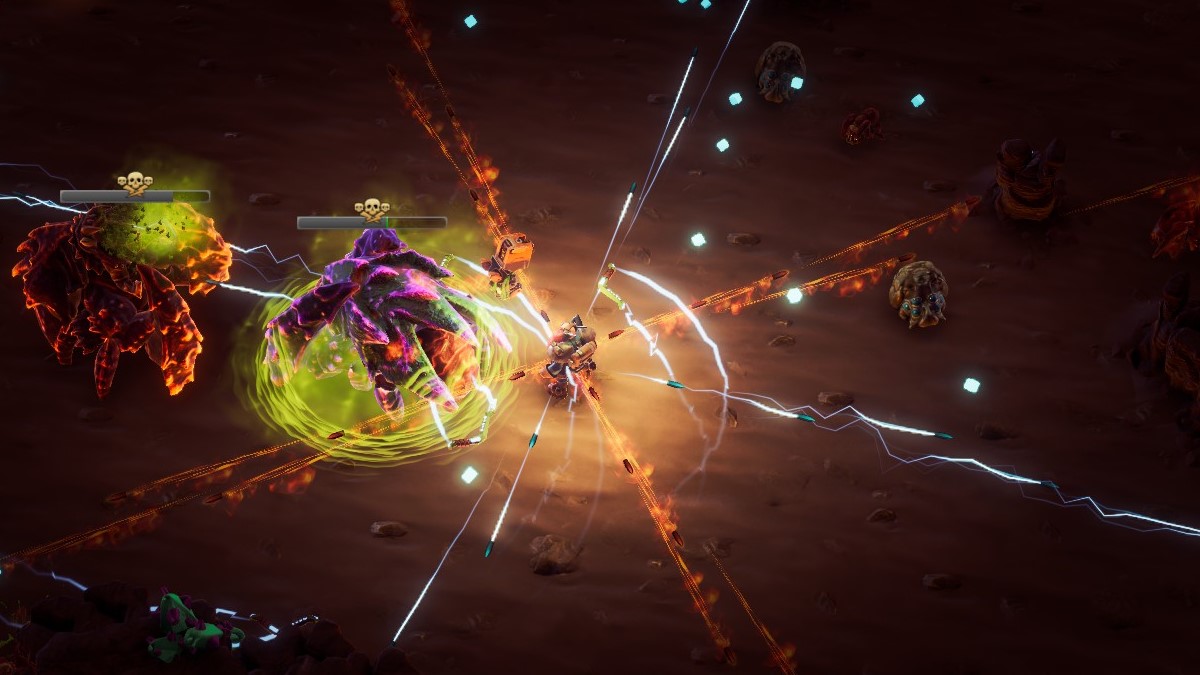
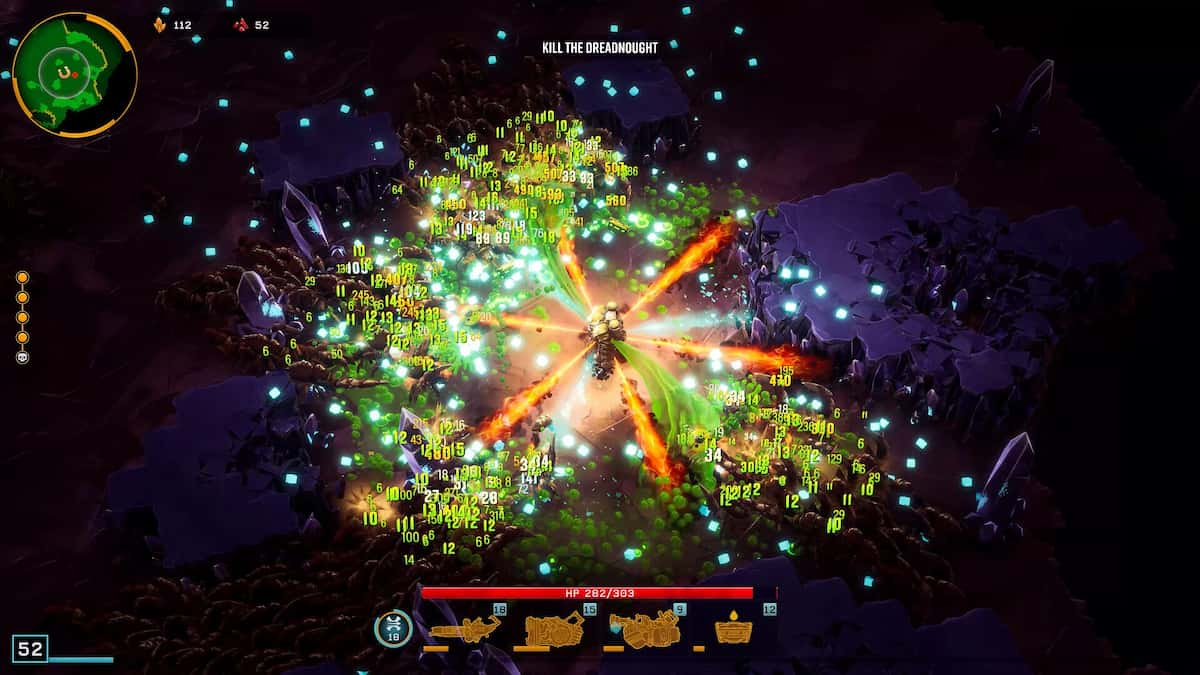
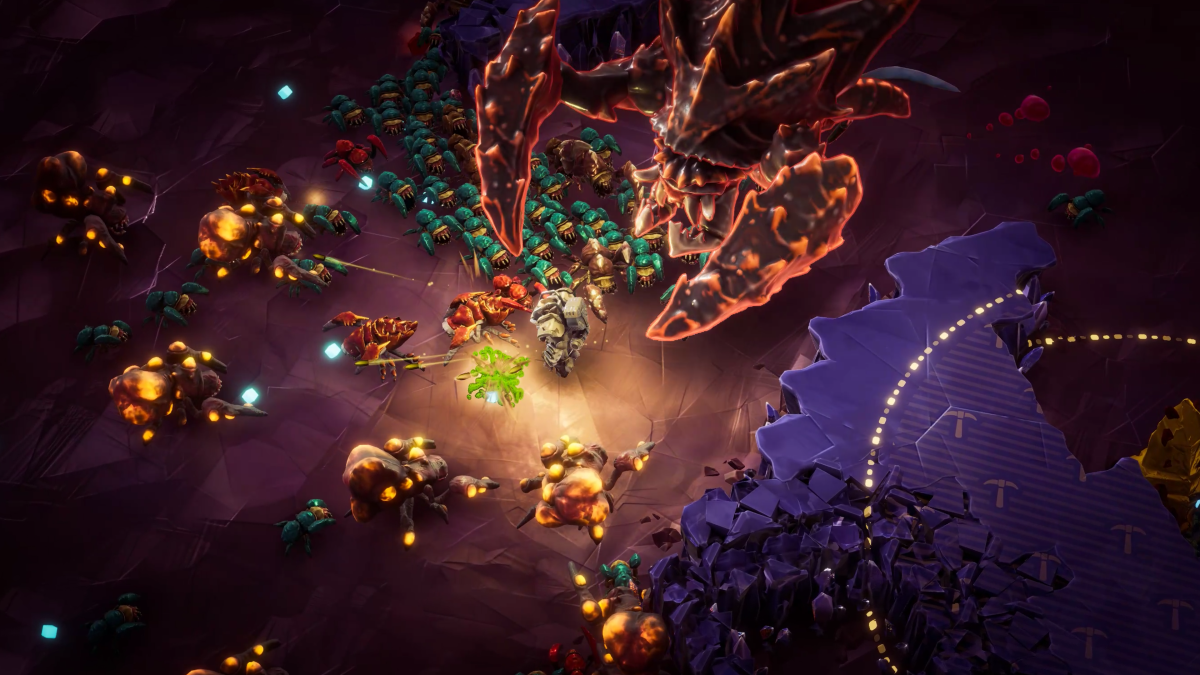
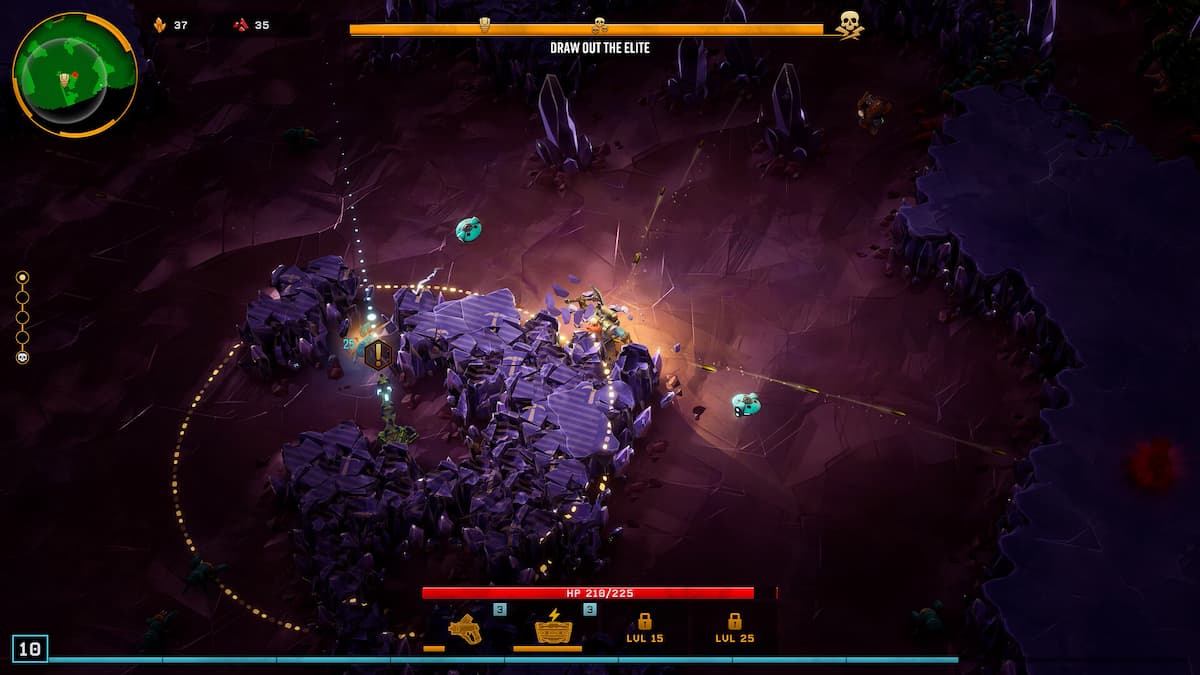
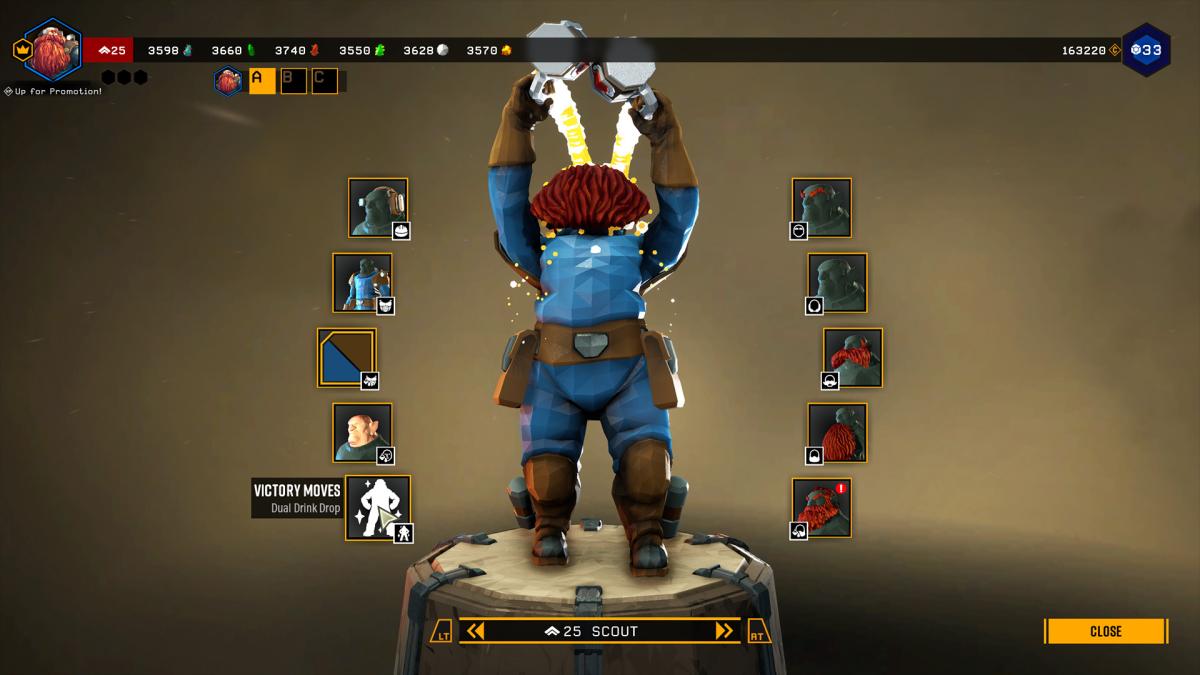
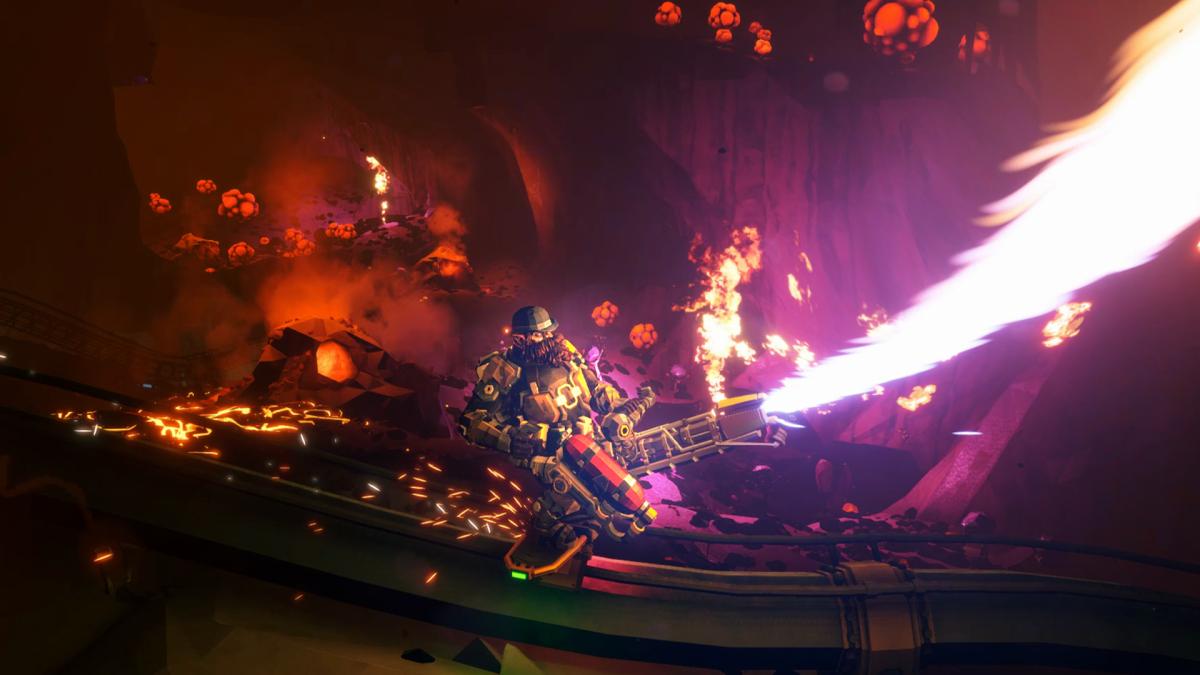
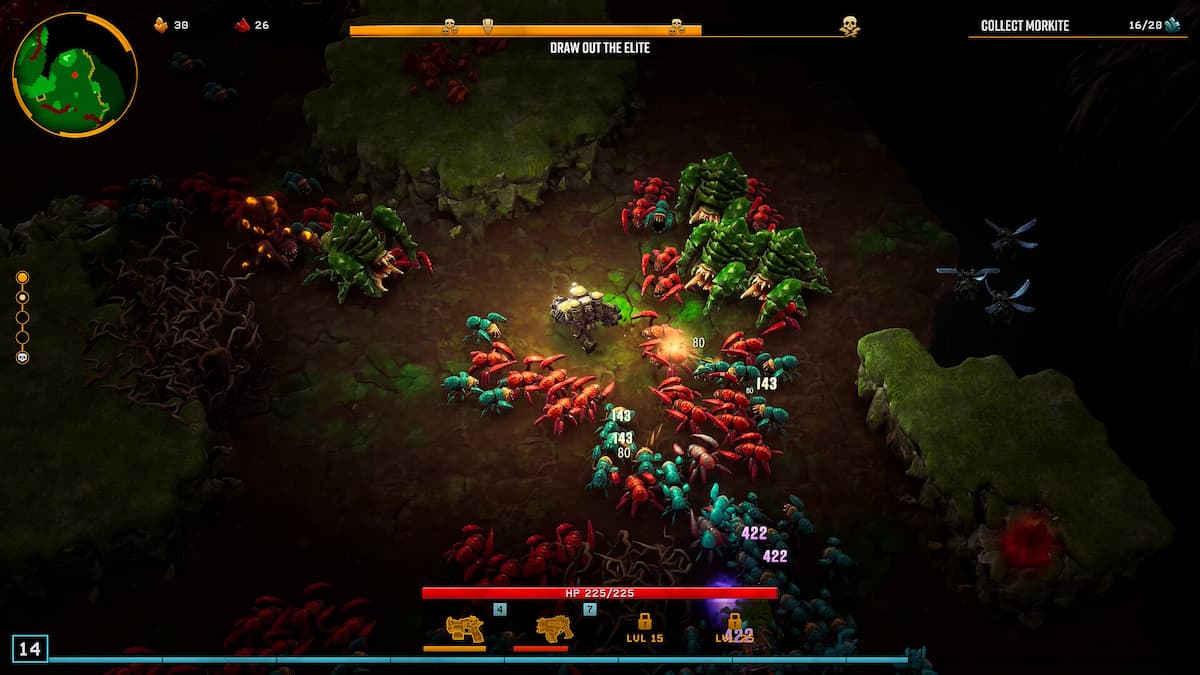
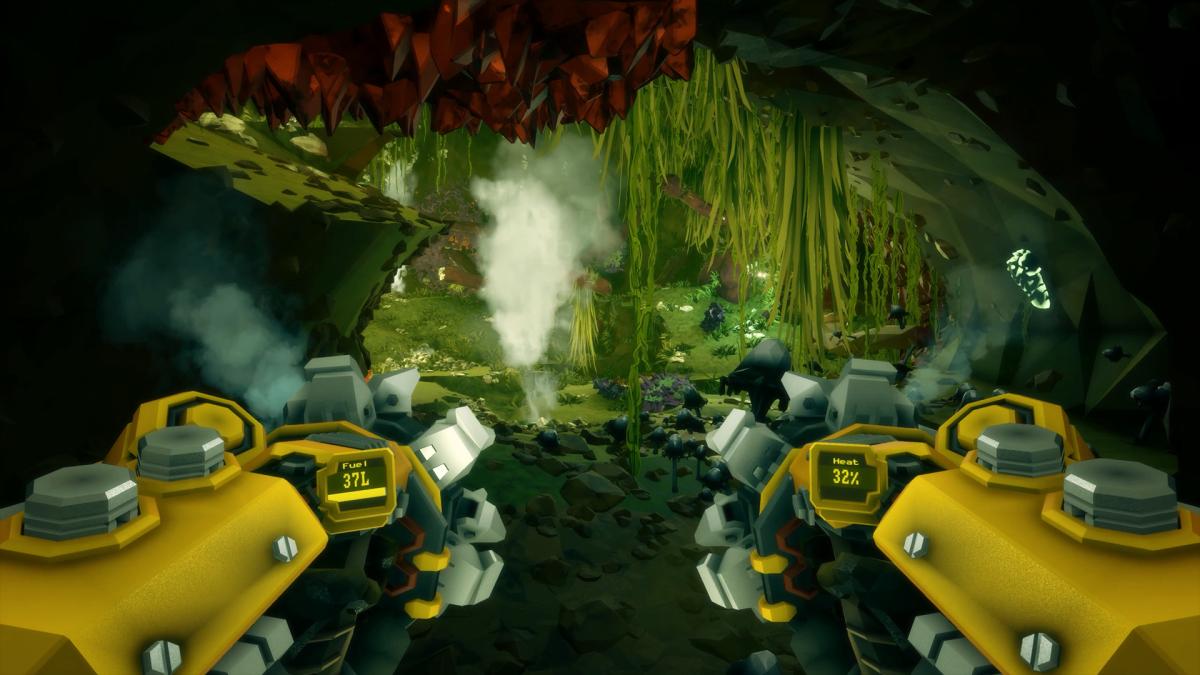

Published: Feb 21, 2024 10:20 pm